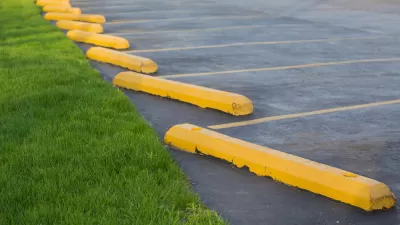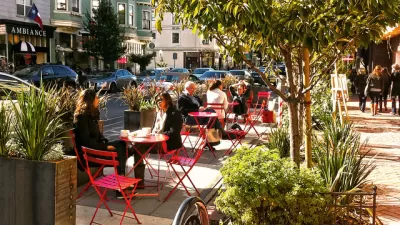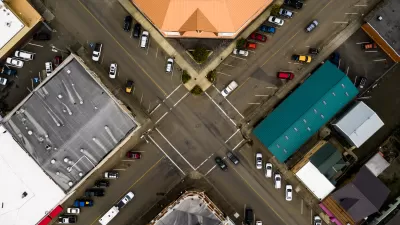More cities and states around the country are recognizing the value of eliminating parking requirements.

The movement to eliminate minimum parking requirements and reform land use patterns in American cities—an issue widely covered by Planetizen and passionately championed by Donald Shoup, who pioneered the concept with his book The High Cost of Free Parking—continues to gather momentum as more policymakers and community leaders understand the benefits of reducing parking mandates and encouraging denser, transit-oriented development that reduces sprawl, limits the need for personal vehicles, and puts daily needs within reach of most citizens. Robert Steuteville describes the growing movement in the Congress for New Urbanism’s Public Square.
According to Catie Gould of the Sightline Institute, while the movement began in downtown cores, “We are seeing a rapid rise in the number of cities eliminating all parking mandates, citywide. Some examples in the news lately include Anchorage Alaska, which covers an area larger than Rhode Island, and San Jose, California, home to a million people.”
As parking reform grows to be seen as more than just a local issue that impacts housing costs, climate resilience, and urban development patterns, some states are taking action as well. “California and Oregon adopted statewide reform in the second half of 2022, and a handful other states are considering similar legislation—some in other parts of the US.”
Steuteville draws attention to another key component of parking reform: curb management. “This issue is critical in communities where empty parking spaces at the curb are scarce. Cities should set the price of curbside parking at a level that maintains one or two open parking spaces on every block, at most times,” according to economist and planner Patrick Siegman, who says this type of parking pricing scheme reduced vehicle miles traveled in downtown Berkeley, California by 693,000 miles per year. Siegman also suggests ‘parking benefit districts,’ which keep parking revenue in the community and use it to enhance neighborhood services.
Steuteville points out that developers have not stopped building parking altogether. But eliminating strict, uniform requirements lets developers build based on market demand and reduce their construction costs. “Local officials trying to encourage more housing supply are increasingly seeing parking policy as a means toward that goal—with little cost and substantial benefit.”
FULL STORY: Parking reform is snowballing

Trump Administration Could Effectively End Housing Voucher Program
Federal officials are eyeing major cuts to the Section 8 program that helps millions of low-income households pay rent.

Planetizen Federal Action Tracker
A weekly monitor of how Trump’s orders and actions are impacting planners and planning in America.

Ken Jennings Launches Transit Web Series
The Jeopardy champ wants you to ride public transit.

Driving Equity and Clean Air: California Invests in Greener School Transportation
California has awarded $500 million to fund 1,000 zero-emission school buses and chargers for educational agencies as part of its effort to reduce pollution, improve student health, and accelerate the transition to clean transportation.

Congress Moves to End Reconnecting Communities and Related Grants
The House Transportation and Infrastructure Committee moved to rescind funding for the Neighborhood Equity and Access program, which funds highway removals, freeway caps, transit projects, pedestrian infrastructure, and more.

From Throughway to Public Space: Taking Back the American Street
How the Covid-19 pandemic taught us new ways to reclaim city streets from cars.
Urban Design for Planners 1: Software Tools
This six-course series explores essential urban design concepts using open source software and equips planners with the tools they need to participate fully in the urban design process.
Planning for Universal Design
Learn the tools for implementing Universal Design in planning regulations.
Heyer Gruel & Associates PA
Ada County Highway District
Institute for Housing and Urban Development Studies (IHS)
City of Grandview
Harvard GSD Executive Education
Toledo-Lucas County Plan Commissions
Salt Lake City
NYU Wagner Graduate School of Public Service





























